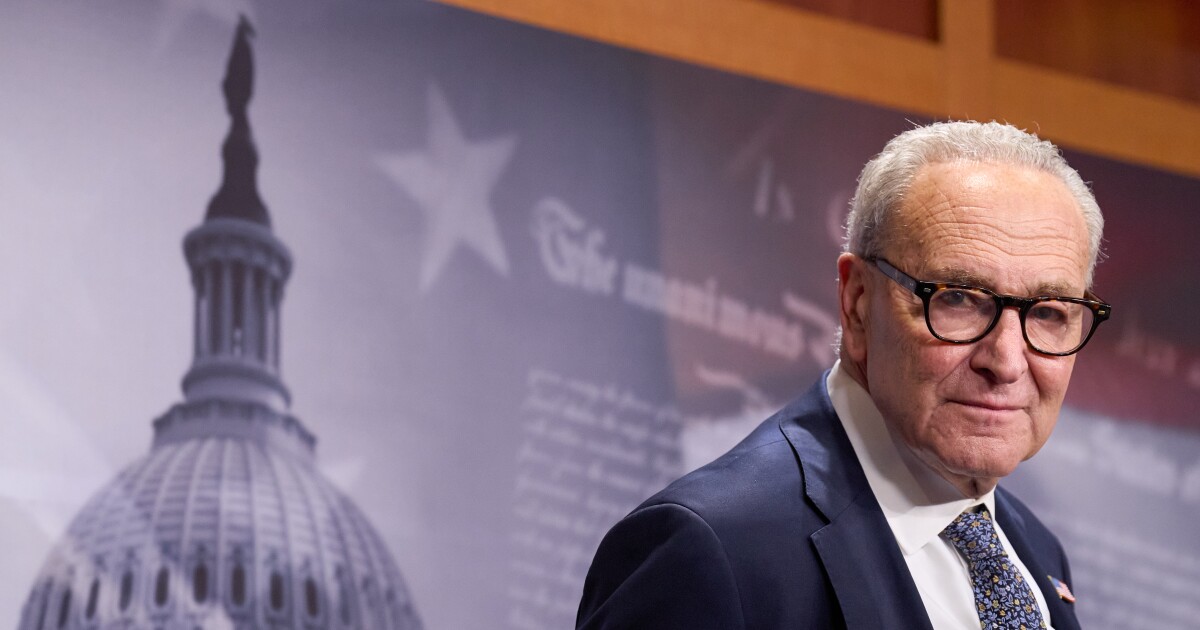Copyright scrippsnews

Senators are working through the weekend for the first time since the government shutdown began more than a month ago, hoping to find a bipartisan resolution that has eluded them as federal workers have gone unpaid, airlines have been forced to cancel flights and SNAP benefits have been delayed for millions of Americans.As Saturday's session got underway Saturday, it was uncertain whether Republicans and Democrats could make any headway toward reopening the government and breaking a partisan impasse that has now lasted 39 days.President Donald Trump made clear he is unlikely to compromise any time soon with Democrats who are demanding an extension of Affordable Care Act tax credits, posting on social media that it is “the worst Healthcare anywhere in the world.” He suggested Congress send money directly to people to buy insurance.Senate Majority Leader John Thune, R-S.D., said Trump's proposal would not be part of a solution to ending the shutdown, but added “it is a discussion that the president and all of us want to have.” Thune said he planned to keep the Senate in session until the shutdown has ended and that "ideally, it would be great to set it up so we could vote today.”RELATED STORY | Shutdown grounds hundreds of flights Saturday; Sunday to bring over 1,000 moreSenate Republican leaders have signaled an openness to an emerging proposal from a small group of moderate Democrats to end the shutdown in exchange for a later vote on the “Obamacare” subsidies.Sen. Jeanne Shaheen, D-N.H., who is leading the talks among moderates, said Friday evening that Democrats “need another path forward” after Republicans rejected an offer from Democratic leader Chuck Schumer of New York to reopen the government and extend the subsidies for a year. “We're working on it,” she said.Moderates continue to negotiateShaheen and others, negotiating among themselves and with some rank-and-file Republicans, have been discussing bills that would pay for parts of government — food aid, veterans programs and the legislative branch, among other things — and extend funding for everything else until December or January. The agreement would only come with the promise of a future health care vote, rather than a guarantee of extended subsidies.It was unclear whether enough Democrats would support such a plan. Even with a deal, Trump appears unlikely to support an extension of the health benefits. House Speaker Mike Johnson, R-La., also said this week that he would not commit to a health vote.RELATED STORY | Supreme Court temporarily pauses lower court order requiring full SNAP paymentsRepublican leaders only need five additional votes to fund the government, and the group involved in the talks has ranged from 10 to 12 Democratic senators.Some Republicans have said they are open to extending the COVID-19-era tax credits as premiums could skyrocket for millions of people, but they want new limits on who can receive the subsidies. They are also arguing that subsidies for the plans should be routed through individuals.“Take the money away from health insurance companies and let's flow it to the people to give them more purchasing power,” said Sen. Lindsey Graham, R-S.C.Republicans eye new package of billsTrump wants Republicans to end the shutdown quickly and scrap the filibuster, which requires 60 Senate votes for most legislation, so they can bypass Democrats altogether. Vice President JD Vance, a former Ohio senator, endorsed the idea in an online post Saturday, saying Republicans who want to keep the filibuster are “wrong.”Republicans have rejected Trump’s call, and Thune is eyeing a bipartisan package that mirrors the proposal the moderate Democrats have been sketching out. What Thune, who has refused to negotiate, might promise on health care is unknown.The package would replace the House-passed legislation that the Democrats have rejected 14 times since the shutdown began Oct. 1. The current bill would only extend government funding until Nov. 21, though senators indicated their version would likely go through January.A choice for DemocratsA test vote on new legislation could come in the next few days if Thune decides to move forward.Then Democrats would have a crucial choice: Keep fighting for a meaningful deal on extending the subsidies that expire in January, while prolonging the pain of the shutdown? Or vote to reopen the government and hope for the best as Republicans promise an eventual health care vote, but not a guaranteed outcome.After a caucus meeting Thursday, most Democrats suggested they would continue to hold out for Trump and Republican leaders to agree to negotiations.Sen. Brian Schatz, D-Hawaii, said Democrats are “obviously not unanimous” but “without something on health care, the vote is very unlikely to succeed.”Vermont Sen. Bernie Sanders, an independent who caucuses with the Democrats, said they need to stand strong after overwhelming Democratic victories on Election Day and demand an extension of the subsidies.



